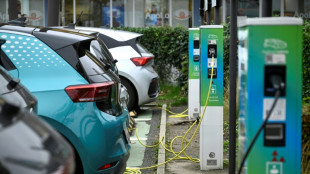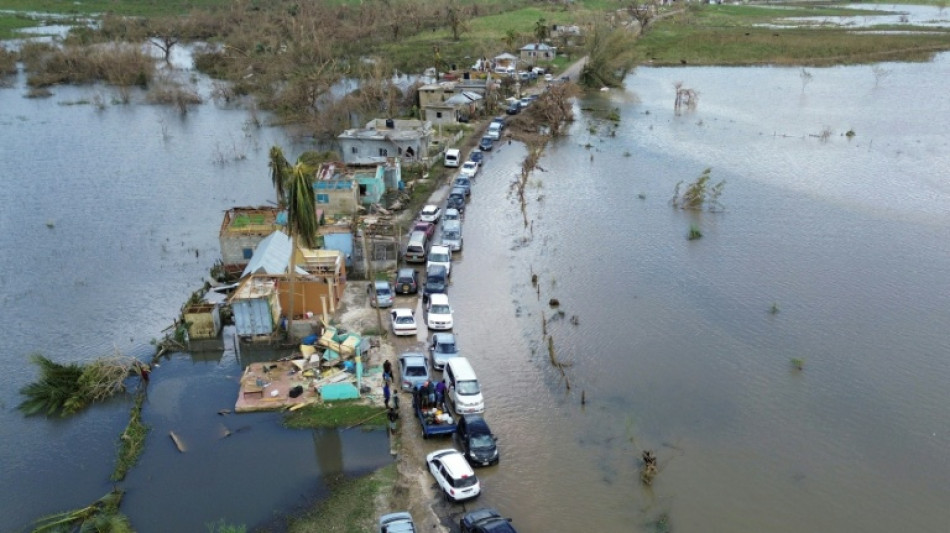
-
 US ouster of Maduro nightmare scenario for Kim: N. Korean ex-diplomat
US ouster of Maduro nightmare scenario for Kim: N. Korean ex-diplomat
-
Svitolina credits mental health break for reaching Melbourne semis

-
 Japan's Olympic ice icons inspire new skating generation
Japan's Olympic ice icons inspire new skating generation
-
Safe nowhere: massacre at Mexico football field sows despair

-
 North Korea to soon unveil 'next-stage' nuclear plans, Kim says
North Korea to soon unveil 'next-stage' nuclear plans, Kim says
-
French ex-senator found guilty of drugging lawmaker

-
 US Fed set to pause rate cuts as it defies Trump pressure
US Fed set to pause rate cuts as it defies Trump pressure
-
Sleeping with one eye open: Venezuelans reel from US strikes

-
 Venezuela's acting president says US unfreezing sanctioned funds
Venezuela's acting president says US unfreezing sanctioned funds
-
KPop Demon Hunters star to open Women's Asian Cup

-
 Trump warns of 'bad things' if Republicans lose midterms
Trump warns of 'bad things' if Republicans lose midterms
-
Russian strikes in Ukraine kill 12, target passenger train

-
 With Maduro gone, Venezuelan opposition figure gets back to work
With Maduro gone, Venezuelan opposition figure gets back to work
-
Celebrities call for action against US immigration raids

-
 Rubio to warn Venezuela leader of Maduro's fate if defiant
Rubio to warn Venezuela leader of Maduro's fate if defiant
-
Denver QB Nix 'predisposed' to ankle injury says coach

-
 Lula, Macron push for stronger UN to face Trump 'Board of Peace'
Lula, Macron push for stronger UN to face Trump 'Board of Peace'
-
Prass stunner helps Hoffenheim go third, Leipzig held at Pauli

-
 Swiss Meillard wins final giant slalom before Olympics
Swiss Meillard wins final giant slalom before Olympics
-
CERN chief upbeat on funding for new particle collider

-
 Trump warns US to end support for Iraq if Maliki returns
Trump warns US to end support for Iraq if Maliki returns
-
Judge reopens sexual assault case against goth rocker Marilyn Manson

-
 South Korea's ex-first lady to learn verdict in corruption case
South Korea's ex-first lady to learn verdict in corruption case
-
Rosenior dismisses Chelsea exit for 'untouchable' Palmer

-
 Markram powers South Africa to win over West Indies
Markram powers South Africa to win over West Indies
-
Vladimir Padrino: Venezuela's military power broker

-
 Amazon closing Fresh and Go stores in Whole Foods push
Amazon closing Fresh and Go stores in Whole Foods push
-
Koepka nervous about game and fans in PGA Tour return

-
 Trump's Iowa trip on economy overshadowed by immigration row
Trump's Iowa trip on economy overshadowed by immigration row
-
Dortmund coach says Inter Milan are improved under Chivu

-
 US border chief in Minneapolis as Trump tries to calm crisis
US border chief in Minneapolis as Trump tries to calm crisis
-
What to know about America's colossal winter storm

-
 Iran warns against 'instability' after US strike group arrives
Iran warns against 'instability' after US strike group arrives
-
GM reports quarterly loss but boosts shareholder returns

-
 US banks fight crypto's push into Main Street
US banks fight crypto's push into Main Street
-
NFL Bills make offensive coordinator Brady new head coach

-
 TikTok settles hours before landmark social media addiction trial
TikTok settles hours before landmark social media addiction trial
-
Newcastle braced for 'ultimate test' against PSG after storm disruption

-
 Brook blitz ends Sri Lanka's unbeaten home run, England clinch series
Brook blitz ends Sri Lanka's unbeaten home run, England clinch series
-
LVMH 2025 net profit drops 13% to 10.9 bn euros

-
 Philip Glass pulls Kennedy Center premiere after Trump takeover
Philip Glass pulls Kennedy Center premiere after Trump takeover
-
Slot says Liverpool must fix 'very bad cocktail'

-
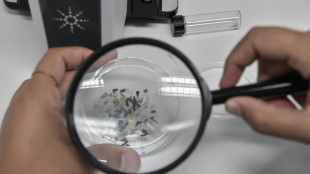 How to assess microplastics in our bodies? Scientists have a plan
How to assess microplastics in our bodies? Scientists have a plan
-
US sued over deadly missile strikes on alleged drug boats

-
 Trump ally Asfura sworn in as Honduras president
Trump ally Asfura sworn in as Honduras president
-
US border enforcer set to leave Minneapolis as Trump tries to calm crisis
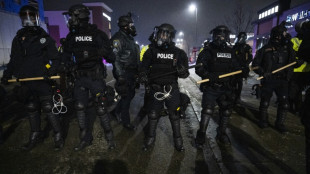
-
 US consumer confidence drops to lowest level since 2014
US consumer confidence drops to lowest level since 2014
-
Teens underwhelmed by France's social media ban

-
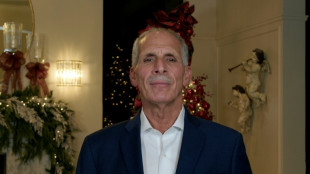 Trump ally Nasry Asfura sworn in as Honduras president
Trump ally Nasry Asfura sworn in as Honduras president
-
BAFTAs nominees in main categories


Facing climate 'overshoot', world heads into risky territory
The spectre of humanity's failure to curb heat-trapping emissions hangs over climate negotiations in Brazil, after the UN confirmed the planet is now certain to "overshoot" 1.5C of warming and faces a tough battle to bring temperatures back down.
Global tensions, economic uncertainty and a US administration under Donald Trump that is hostile to climate science have snatched political focus away from tackling the fossil fuel pollution and environmental destruction driving warming.
With tepid climate ambition and emissions still rising, UN Secretary-General Antonio Guterres recently acknowledged that crossing 1.5C in the coming years was now inevitable.
But he insisted the world must not give up on the Paris Agreement's safer goal.
"The path to a livable future gets steeper by the day. But this is no reason to surrender," he said this week as countries prepared to meet for the COP30 summit in the Amazon city of Belem.
Scientists say every tenth of a degree over 1.5C magnifies dangerous and costly impacts -- such as drought, heat, fire and floods -- while increasing the risks of passing large-scale tipping points.
Climate scientist Johan Rockstrom, director of the Potsdam Institute for Climate Impact Research, said humanity now faces perhaps 50 to 70 years above 1.5C before possibly dragging temperatures back down.
"It means with essentially a hundred percent certainty that we will have a very rough time before it potentially gets better," he told AFP.
- 'Declare failure' -
The 2015 Paris climate deal aimed to limit global warming to "well below" 2C from pre-industrial (1850-1900) levels -- and 1.5C if possible.
While overshoot -- temperature trajectories that go beyond 1.5C before coming back down -- is not a new concept in science, many leading climate figures have been uneasy talking about it.
"I didn't want to give the impression that it's okay if we overshoot," Patricia Espinosa, the former head of UN Climate Change, told AFP earlier this year.
"I wanted to keep very, very firm."
To minimise or avoid overshoot, the Intergovernmental Panel on Climate Change (IPCC) said emissions needed to peak around 2020 and be essentially halved by 2030.
At the midway point of the decade, emissions continue to rise and so do temperatures, with 2024 the first full year above 1.5C.
So the message is shifting.
"The first thing we need to honestly communicate to humanity, but also to all political leaders in the world gathering in Belem, is that we have to declare failure," said Rockstrom, who was among the scientists consulted by Guterres ahead of COP30 in Brazil.
But this only adds to the urgency for action, he said, with higher warming raising risks for food systems, fresh water and global security.
"There's no evidence that we can adapt to anything beyond two degrees Celsius," Rockstrom said. Beyond 3C would mean "disaster mode" for billions, he added.
The IPCC has warned that crossing 1.5C threatens the widespread melting of mountain glaciers and ice sheets containing enough frozen water to ultimately lift the ocean by metres.
Tropical coral reefs, the nursery for a significant share of marine life and crucial to the livelihoods of some 200 million people, are likely already reaching a tipping point, according to recent research.
But there are still many unknowns, including how long these systems might be able to endure with overshoot.
- Negative emissions -
To turn the situation around, Guterres said the world needed to peak emissions "immediately", speed up the transition to renewable energy, and protect forests and oceans, which play a crucial role in absorbing carbon from the atmosphere.
After reaching net zero by 2050, the world will also need to swiftly deploy strategies to remove carbon from the atmosphere.
Research by Climate Analytics suggests that the huge rollout of cheap green technologies like solar and wind mean fossil fuels could be phased out sooner than expected, with warming ultimately brought back to 1.2C by 2100.
But they said the most ambitious global climate action likely means an overshoot of at least 1.7C for decades.
Lowering temperatures will require the use of controversial technologies -- to capture carbon emissions at source or permanently remove CO2 from the air -- which are not yet operational at scale.
It also relies on forests and the ocean to continue absorbing half of all CO2 pollution.
But that may already be changing.
In October the World Meteorological Organization reported a record jump in the amount of CO2 in the atmosphere and voiced "significant concern" that the land and oceans were becoming less able to soak up carbon dioxide.
"The whole picture points towards an increasing difficulty with relying on the Earth system to take up the carbon," said Bill Hare of Climate Analytics.
"We're now in a very risky space."
I.Stoeckli--VB

